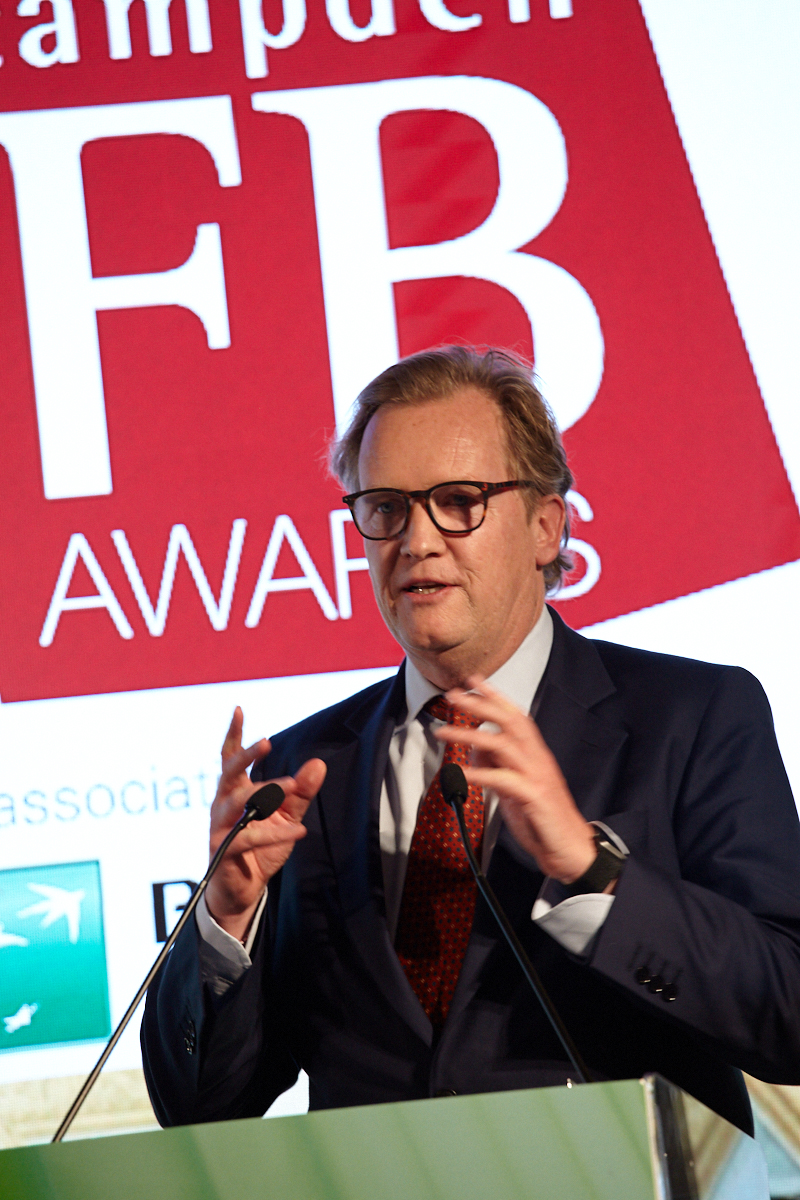FB Roundup: Sodexo, Henkel, Roche

Sodexo mobilises globally and board cuts pay to support laid-off staff
The family principal and chiefs of Sodexo, the French family-owned food services and facilities management group, will cut their pay and support their staff made redundant because of the coronavirus outbreak with a $32.6 million fund.
Sophie Bellon (pictured), 58, the second-generation chairwoman of the $24 billion company, will waive 50% of her remuneration over the coming six months, Sodexo announced this week. Denis Machuel, the non-family chief executive will also waive 50% as well as his variable remuneration for the fiscal year. Executive committee members will give up 10% of their fixed remuneration over the coming six months in addition to their annual variable remuneration. The company’s 200 senior executives from all operations around the world will also waive their annual variable remuneration.
The savings will be directed into a €30 million ($32.6 million) Sodexo Employee Relief Programme to help on-site staff who face layoffs. The global programme will be administered locally according to the needs of each country and support will depend on such factors as the existence of government social protection schemes, the family business said.
Bellon, daughter of founder Pierre Bellon, said Sodexo’s teams were its most precious asset.
“In adversity, they demonstrate the strength of our values and their professionalism without fail. I want to highlight my support and express my gratitude to them during these particularly difficult times.”
The family’s solidarity with its staff was the latest tactic in Sodexo’s almost military-scale mobilisation to continue operations while combating the health, economic and social fallout from Covid-19 across the 67 countries it operates in.
Sodexo staff supported healthcare professionals and patients in the hospitals of Wuhan, the Chinese province where the outbreak started in December. The 95,000 employees working globally in hospitals and senior residences have been supported by team members from less active sites. Teams continue to distribute 300,000 meals a day to US students despite the closure of schools and colleges.
 Henkel makes hand disinfectants and donates millions
Henkel makes hand disinfectants and donates millions
Henkel, Germany’s fifth-generation $22 billion chemical and consumer goods company, has switched production lines to make 25,000 litres of hand disinfectants and give to healthcare professionals fighting the coronavirus.
This week, the 174-year-old family business converted a production facility at its Dusseldorf site and made the first batch for nearby hospitals and public institutions. The firm said it will produce another 25,000 litres of disinfectant next week for wider distribution.
Henkel said it will donate five million units of personal and household hygiene products globally. This includes hand sanitisers, soaps and protective equipment as well as detergents, disinfectants and other household cleaning products. Henkel’s “corporate citizenship team” will deliver the donations in step with charities, local authorities and partners around the world.
Henkel also said it will consider improved payment terms for small and mid-sized business owners, such as hairdressers, to help them stay afloat while customer demand flatlined.
The family’s nine-year-old philanthropic Fritz Henkel Foundation will donate €1 million directly to the Covid-19 Solidarity Response Fund, launched by the World Health Organisation and the United Nations Foundation. The donation will help provide protective equipment for frontline health workers, equip diagnostic laboratories, improve data collection and analysis, as well as establish and maintain intensive care units while accelerating the research and development of potential vaccines and therapeutics. Another €1 million will be distributed by the family’s foundation around the world to different organisations to support Henkel employees in their voluntary efforts to fight the virus.
Konstantin von Unger (pictured) is a fifth-generation member of Henkel’s Shareholder Committee.
 Coronavirus-testing family business Roche hailed by UK government
Coronavirus-testing family business Roche hailed by UK government
The huge diagnostic capability of the Swiss fourth-generation Roche Group, the world’s largest biotech company, has been cited by the UK’s health minister when explaining why the UK controversially lags behind other countries in testing for the coronavirus.
“Unlike some countries, we didn’t go into this crisis with a huge diagnostics industry,” Matt Hancock, Secretary of State for Health and Social Care, said during the government’s daily press briefing on Thursday.
“We have the best scientific labs in the world, but we did not have the scale. My German counterpart, for instance, could call upon a hundred test labs, ready and waiting, when the crisis struck, thanks in large part to Roche, one of the biggest diagnostic companies in the world. We have had to build from a lower base.”
Founded by Fritz Hoffmann-La Roche in 1896, the Roche Group is headquartered in Basel, Switzerland and active in more than 100 countries. It employs 98,000 people worldwide. In 2019, Roche invested CHF 11.7 billion ($12 billion) in research and development and posted sales of CHF 61.5 billion ($76 billion).
Fritz Hoffmann-La Roche’s great-grandson is Andre Hoffmann (pictured), 61, the group’s vice chairman.
“We need to look at financial returns, because without that, there's nothing,” Hoffman told PwC in 2018.
“But you also need to look at environmental and social returns. We can satisfy shareholders; we can have a profitable business; we can have a forward-looking business. But we can also minimise the impact of our footprint on society and the environment.
“My dream is to position Roche and many other companies into this territory where they can become net contributors to societies—and not the opposite.”
Roche said in mid-March it was working with the World Health Organisation, governments, non-governmental organisations and health authorities in affected countries to ensure access to diagnostics and healthcare.
Its emergency response teams were developing a diagnostics test. The family business was “committed to delivering as many tests as possible and is going to the limits of our production capacity.”






